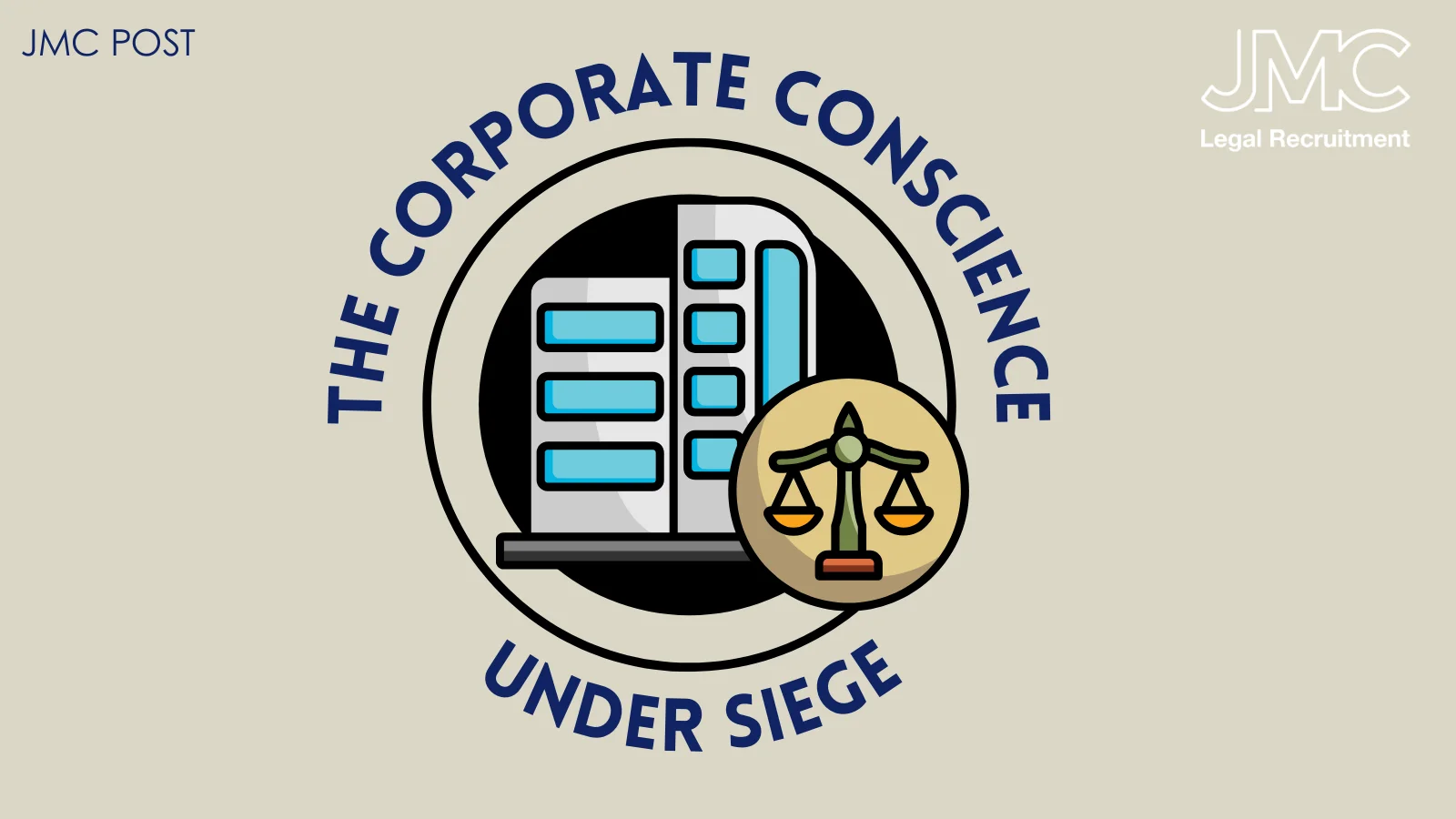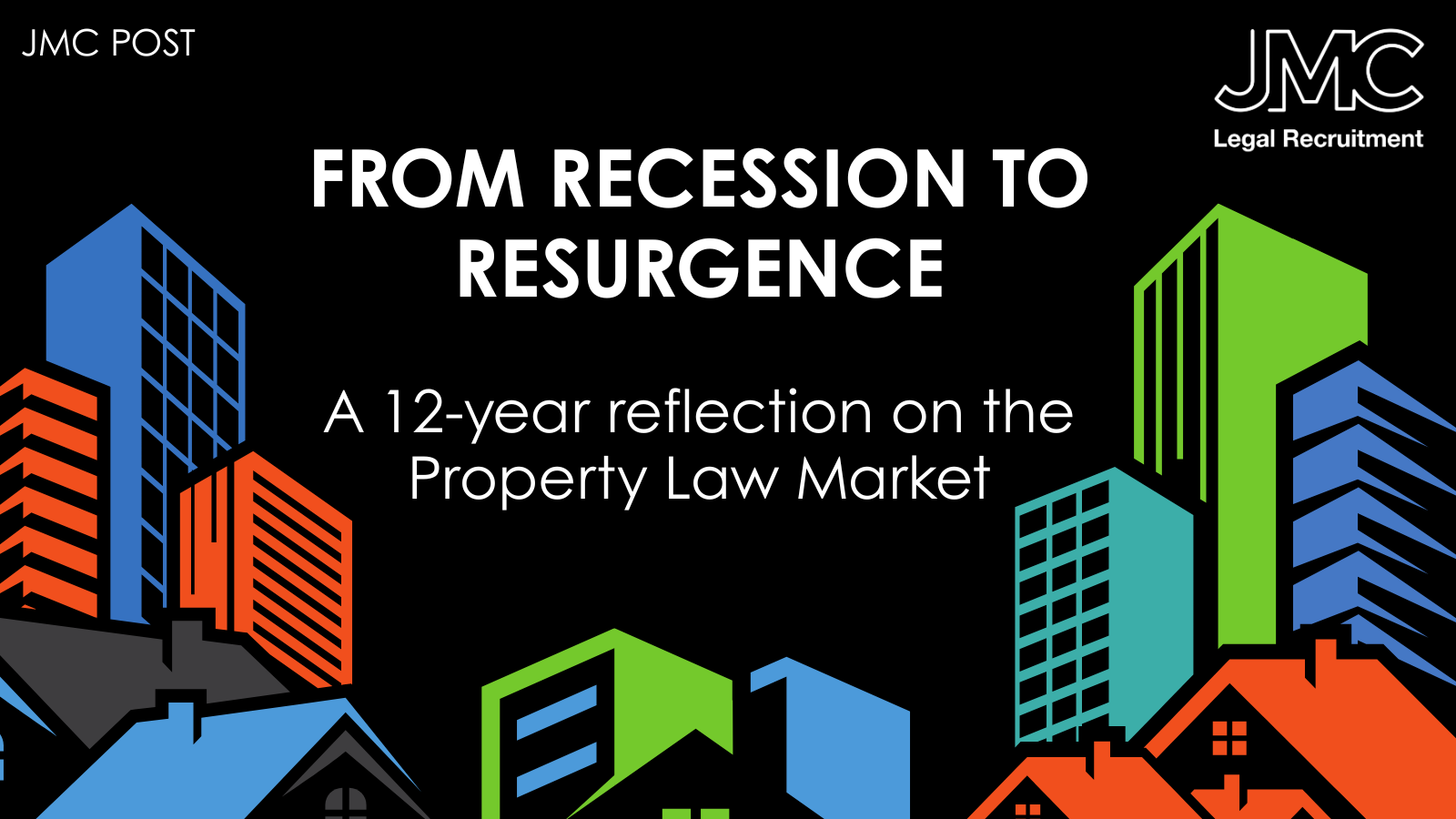
From Recession to Resurgence: A 12-Year Reflection on the Property Law market
29 May, 20256 minutes
From Recession to Resurgence: A 12-Year Reflection on the Property Law Market
Why Property Law Jobs Are Set to Surge Again
Twelve years ago, I started in legal recruitment. It was a different world back then, sluggish economy, risk-averse law firms, and a general sense that if you even mentioned property law jobs or residential conveyancing vacancies someone might hand you a redundancy notice.
I entered the industry in the long shadow of the 2008 financial crisis. Property lawyers were seen as a liability. Many had requalified into other areas, crime, litigation, employment, you name it, while others found themselves unable to get interviews, let alone offers. Many sadly left the industry all together.
In my very first recruitment role, I was explicitly told by the owner of the agency:
“Don’t bother wasting your time speaking to property solicitors. No one wants them.”
But even as a newbie, this didn’t sit right. Surely, I thought, if the market is recovering, won’t property inevitably follow? Demand doesn’t vanish; it simply stalls. So, quietly and consistently, I ignored my manager’s advice. I built relationships with residential conveyancing solicitors, tracked residential conveyancing vacancies, connected with commercial property lawyers, property finance partners, anyone who would pick up the phone which was most people given that all agencies were taking the same approach. I was spreading the property law love and optimism by the bucket load.
And guess what?
Five months later, the market erupted. Salaries surged. Law firms that couldn’t give property roles away six months earlier were now scrambling to hire with salaries at all time high.
It was carnage in the best possible way.
The Last Decade in Property Law: Boom, Bust and Everything In Between
The last 10 years have been a rollercoaster for property law jobs, affecting everyone from junior conveyancers to senior property partners. Looking back, the property market over the last 10 years has read like a Netflix drama, full of twists, cliff hangers, and surprise rebounds. Here's a brief timeline for context:
- 2013–2016: The market was on a steady climb. House prices rose by nearly 30% across the UK during this period. Residential and commercial transactions alike saw consistent growth.
- 2016: Brexit shook the market. A 12.8% drop in residential transactions followed as investor confidence wobbled.
- 2019–2021: The pandemic threw a spanner in the works. But oddly, property boomed again post-lockdown, fuelled by stamp duty holidays and a surge in remote-working relocations. After the pandemic to say we were busy was an understatement, this did however plateau within 6 months.
- 2022: Enter Liz Truss. Her notorious mini-budget caused financial chaos. Interest rates soared. Lenders pulled products. Confidence evaporated. House prices dropped by 5%, wiping a jaw-dropping £336 billion off household values.
- 2023–2025: A slow but steady recovery. The average UK house price now stands at £268,250 (a 1.6% rise from last year). Commercial real estate activity is picking up too, particularly in logistics, life sciences, and mixed-use developments.
For every residential property solicitor or commercial real estate partner reading this, does this sound familiar?
Interest Rates: The Ultimate Frenemy
The Bank of England has been yo-yoing interest rates like a caffeinated juggler. In 2022, rates hit 5.25%, the highest since 2008. This had a chilling effect on residential transactions and made large-scale commercial developments harder to fund.
But in May 2025, a long-awaited rate cut to 4.25% brought some relief. Economists forecast a further drop to 3.75% by the end of the year (assuming inflation plays ball).
So, what does this mean for you if you're a property solicitor, construction lawyer, or real estate partner?
It means opportunity. More deals. More instructions. More clients who need sharp legal minds to navigate a changing landscape.
Politics, Planning, and Keir Starmer’s Building Boom
Let’s talk politics, specifically, the Labour Party’s bold pledge to build 1.5 million homes by 2029.
If Keir Starmer gets his way, we’ll see a planning overhaul, more brownfield development, and support for SME builders. In short, the government wants to "get Britain building again."
For law firms, this means:
- An uptick in planning and environmental instructions
- More work for development and construction teams
- Growth in residential conveyancing vacancies and infrastructure law
Firms are already asking us to help hire property partners with experience in regeneration projects, land acquisition, and mixed-use development. If you’re a partner in real estate, now’s the time to be visible, the market wants you.
Questions Property Lawyers Might Be Googling Right Now
Let’s get real. Here are a few questions I wouldn’t be surprised to see typed late at night into Google by many a weary solicitor:
- “Is property law a good specialism in 2025?”
Yes, and it’s only getting hotter. - “Are firms still hiring residential property solicitors?”
Absolutely. Many firms are restructuring teams or succession planning as senior fee earners retire. - “Can I move into construction or development law from general property?”
Yes, especially if you’ve got experience handling large-scale or complex transactions.
Final Thoughts (and a Gentle Nudge)
Twelve years on, I’m still convinced that property lawyers are the quiet powerhouse of the legal profession. You’re resilient, commercial, and used to dealing with chaos, whether it’s exchange day drama or global financial instability.
If you’re a real estate solicitor, property partner, or just someone feeling stuck in your current role. have you taken stock of your market value recently?
Because I promise you, there’s a lot going on under the surface.
Whether you’re exploring property law jobs for the first time or considering a lateral move into a new specialism, there’s never been a better moment to explore the market. At JMC Legal, over 50% of our work involves property roles. We speak to hiring partners, heads of department, and decision-makers daily. We know where the real opportunities are, and we know how to position you to get them.
So, if you’re curious, even just a little, about what’s out there, let’s have a confidential chat.
The next property boom? It’s already showing signs of rumbling.
By Jason Connolly, CEO of JMC Legal Recruitment
Related Articles
[2025 Trends in Partner Hiring and Lateral Moves: A Strategic Guide for Law Firms and Candidates]



